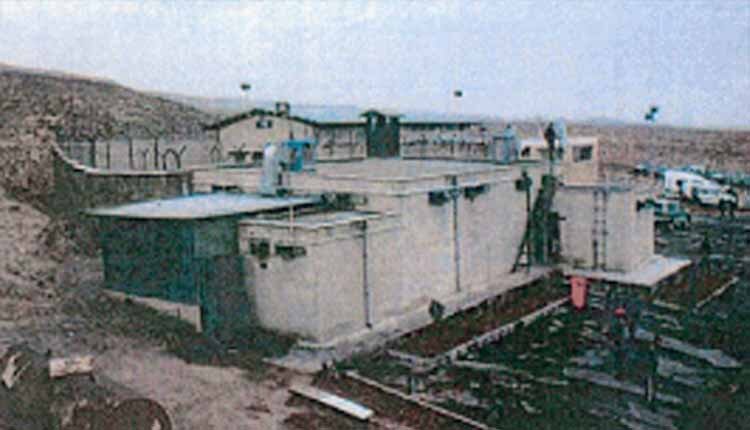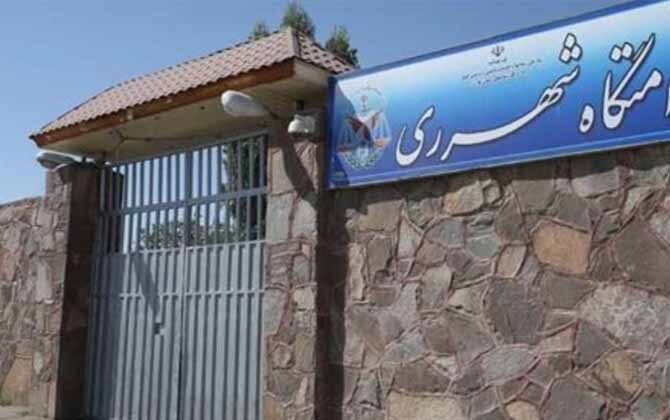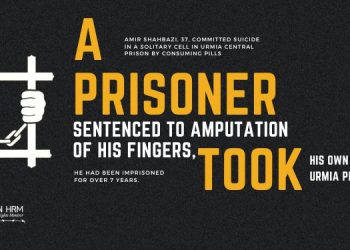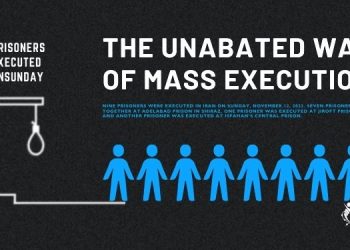Qarchak Prison (Shahre-rey Prison) located in east of Tehran, is known as the most dangerous and worst prison for women in Iran.
Qarchak prison, a former industrial chicken farm in Varamin is a disused chicken farm that holds hundreds of women convicted of violent offences in conditions falling far below the UN Standard Minimum Rules for the Treatment of Prisoners (the Nelson Mandela Rules).
Common complaints include urine-stained floors, lack of ventilation, insufficient and filthy bathroom facilities, prevalence of contagious diseases, poor quality food containing small pieces of stone and salty water. In several cases, women prisoners complained that fumes escaped from the drainage system, filling their rooms with foul odors.
Living conditions:
The Qarchak women’s prison located in a desert, east of Tehran, is known as the most dangerous and worst prison in Iran due to its inhumane medical and psychological conditions.
The prison hosts many inmates despite its small size. The prison does not divide inmates according to the crimes committed and this leads to violence thus, worsening the situation as they lack medical services and are subjected to torture.
Qarchak prison’s seven sections include more than 2,000 prisoners where 200-300 prisoners are held in each section. Some of these prisoners have children with them while the number of prisoners increases every year.
The wards inside the prison are warehouses divided into several sections, with each section containing about 12 rooms that are approximately 9 sq. meters (97 sq. feet).
Each room has three, three-story bunk beds for nine prisoners, and usually two additional prisoners also sleep on the floor.
The entire area of the prison does not exceed 1,500 meters while the area of the sections, administration and the rest of the prison’s parts does not exceed 400 meters, meaning that each inmate’s space is about 20 centimeters.
The beds are enough for only several dozen people and the rest of inmates must sleep on the floor among the beds up to the door of the lavatories. Usually, there are three or four prisoners who sleep on the floor next to each room.
There is no place for eating or mere sitting. Prisoners must do everything on their beds.
The prison’s large warehouse structure lacks enough heating, ventilation and air conditioning technology that could regulate the extreme temperatures inside the building during the winter and summer months.
Swamps and marshes surround the prison, so the prison is filled with insects and rats.
The prison does not have any library and prisoners are not given even newspapers, which is especially difficult for political prisoners.
Food conditions:
Prisoners are given three meals a day, but one can easily miss the meal if she is not fast.
Prison meals lack essential vitamins and nutrients and are so poorly prepared that they’re usually inedible.
If a prisoner needs more food, or if she protests about having not received her food, she is beaten. Prisoners are hungry most of the time. There are times, when older prisoners cry from hunger when they see the guards eat bread and butter.
There is no variety in food. Boiled potatoes, macaroni and bread. Prisoners have not had any meat for years. The quality of rice is very bad, and it is cooked with camphor. The best dinner in prison is boiled eggs and potatoes given once a week. Some nights, the dinner is a dilute soup containing a little grain, while it is contaminated with insects and other stuff.
The water in Gharchak is so salty that prisoners have to buy bottled water from the store at triple the normal price.
The water is salty due to the prison’s poor filtration system. The lack of accessible drinking water causes friction among the prisoners who can afford to buy expensive bottled water from the commissary and those who cannot.
Unsanitary Conditions:
The state of hygiene is deplorable in Qarchak Prison. It has caused contagious, infectious diseases circulating amongst inmates.
For every 100 to 150 prisoners in each ward, there are 10 toilets but only three or four of them work.
There are a few shower stalls that are used by turn. The baths have warm water for only a few hours during the day which is rationed among all the prisoners. Prisoners’ turn to shower came every couple of days, sometimes once a week.
Sometimes the situation is so deplorable that 100 inmates are waiting to take a shower in the same hour. There is a time when three or four prisoners have to take showers together in the same stall.
The water used for bath or lavatory is salty and does not dissolve soap. As a result, prisoners cannot properly wash their clothes and they contract various skin diseases because of this situation.
Prisoners drink water, wash dishes and clothes in the same baths and lavatories.
The floor of the toilet is always covered with water. Since the slippers are torn, prisoners’ feet get wet and contaminated every time they use the bathroom.
The wards are dirty and there are no cleaning and washing detergents. So, prisoners shave their hair to avoid lice.
There is no ventilation in the wards, which aggravates the unsanitary conditions.
The place where prisoners are allowed to take in some fresh air is not an open space but is actually a room with no ceiling which is large enough for only several dozen people.
The state of hygiene is even worse in the quarantine ward.
Denial of Medical Treatment:
There is no medical care in Qarchak Prison. Officials say they have no budget for this. There is a place called dispensary, but they do not do anything there even when there is an emergency case.
Access to the prison doctor is limited to once a month by appointment, and the authorities only allow emergency visits to the prison’s clinic in extreme cases.
Officials also prevent prisoners from receiving the medications their families bring for them under the pretext of controlling entry of narcotic drugs. Prisoners buy their medications from the black market.
Torture and rape:
According to reports inmates are subjected to all forms of torture which also include rape. The prison’s management insults and beats up prisoners thus causing and worsening psychological problems.
The prison’s management punishes inmates who protest the prison’s conditions, such as the bad quality of food or lack of medical services, by sending them to solitary confinement with another psychologically disturbed prisoner in order to torture them.












